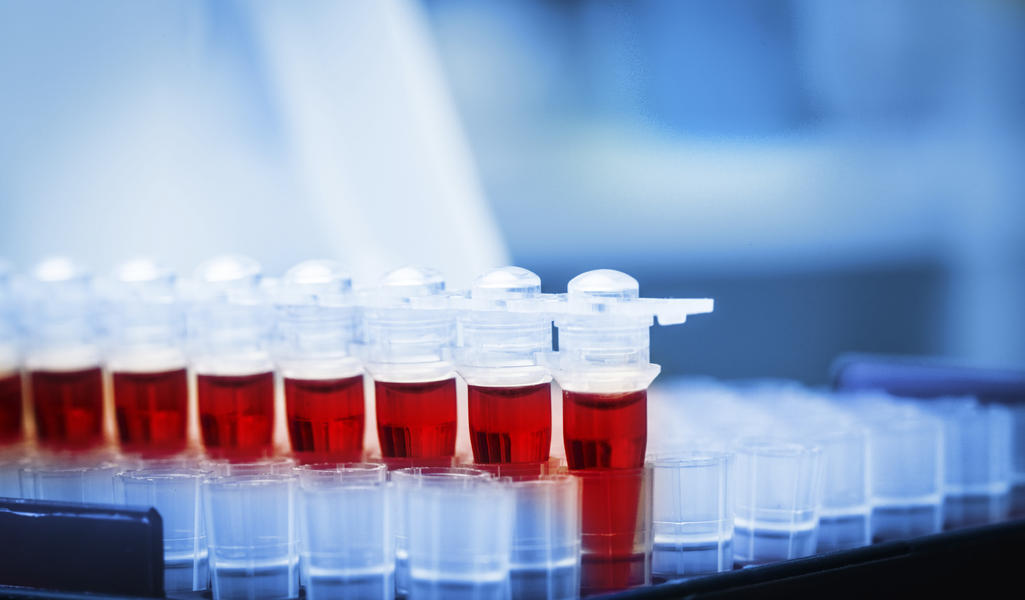A new blood test may determine suicide risk


As a new study determined a link between depression and cognitive decline, a separate study has suggested there may be a way to determine suicide risk from a blood test.
Doctors at Johns Hopkins University found that DNA could play a key role in determining someone's risk of suicide. The study, published in The American Journal of Psychiatry, found that the gene SKA2, which is involved in stress reaction, could predict suicide risk. The researchers conducted three experiments on brain samples from the deceased, and they conducted another three experiments using blood.
The Johns Hopkins team has previously studied postpartum depression risk factors, which they found were related to the body's level of the stress hormone cortisol. The new study found that people with less SKA2 had higher cortisol levels. In the study, researchers found that the brains of those who had died from suicide had less SKA2 than the brains of those who had died from other causes.
The Week
Escape your echo chamber. Get the facts behind the news, plus analysis from multiple perspectives.

Sign up for The Week's Free Newsletters
From our morning news briefing to a weekly Good News Newsletter, get the best of The Week delivered directly to your inbox.
From our morning news briefing to a weekly Good News Newsletter, get the best of The Week delivered directly to your inbox.
The researchers were then able to predict suicide risk with "80 to 90 percent accuracy based on the severity of the risk," The Daily Beast reports. The doctors are now planning to test new samples from military soldiers.
"If we can identify who is at risk, we may be able to intervene in effective ways," Dr. Zachary Kaminsky, lead author of the study, told The Daily Beast. "Notably, we could identify individuals in military populations who are more vulnerable to stress. We know they're going to be experiencing stress when they go off to combat."
A free daily email with the biggest news stories of the day – and the best features from TheWeek.com
Meghan DeMaria is a staff writer at TheWeek.com. She has previously worked for USA Today and Marie Claire.
-
 Claude Code: the viral AI coding app making a splash in tech
Claude Code: the viral AI coding app making a splash in techThe Explainer Engineers and noncoders alike are helping the app go viral
-
 ‘Human trafficking isn’t something that happens “somewhere else”’
‘Human trafficking isn’t something that happens “somewhere else”’Instant Opinion Opinion, comment and editorials of the day
-
 What would a credit card rate cap mean for you?
What would a credit card rate cap mean for you?the explainer President Donald Trump has floated the possibility of a one-year rate cap
-
 Blue Origin launches Mars probes in NASA debut
Blue Origin launches Mars probes in NASA debutSpeed Read The New Glenn rocket is carrying small twin spacecraft toward Mars as part of NASA’s Escapade mission
-
 Dinosaurs were thriving before asteroid, study finds
Dinosaurs were thriving before asteroid, study findsSpeed Read The dinosaurs would not have gone extinct if not for the asteroid
-
 SpaceX breaks Starship losing streak in 10th test
SpaceX breaks Starship losing streak in 10th testspeed read The Starship rocket's test flight was largely successful, deploying eight dummy satellites during its hour in space
-
 Rabbits with 'horns' sighted across Colorado
Rabbits with 'horns' sighted across Coloradospeed read These creatures are infected with the 'mostly harmless' Shope papilloma virus
-
 Lithium shows promise in Alzheimer's study
Lithium shows promise in Alzheimer's studySpeed Read Potential new treatments could use small amounts of the common metal
-
 Scientists discover cause of massive sea star die-off
Scientists discover cause of massive sea star die-offSpeed Read A bacteria related to cholera has been found responsible for the deaths of more than 5 billion sea stars
-
 'Thriving' ecosystem found 30,000 feet undersea
'Thriving' ecosystem found 30,000 feet underseaSpeed Read Researchers discovered communities of creatures living in frigid, pitch-black waters under high pressure
-
 New York plans first nuclear plant in 36 years
New York plans first nuclear plant in 36 yearsSpeed Read The plant, to be constructed somewhere in upstate New York, will produce enough energy to power a million homes
